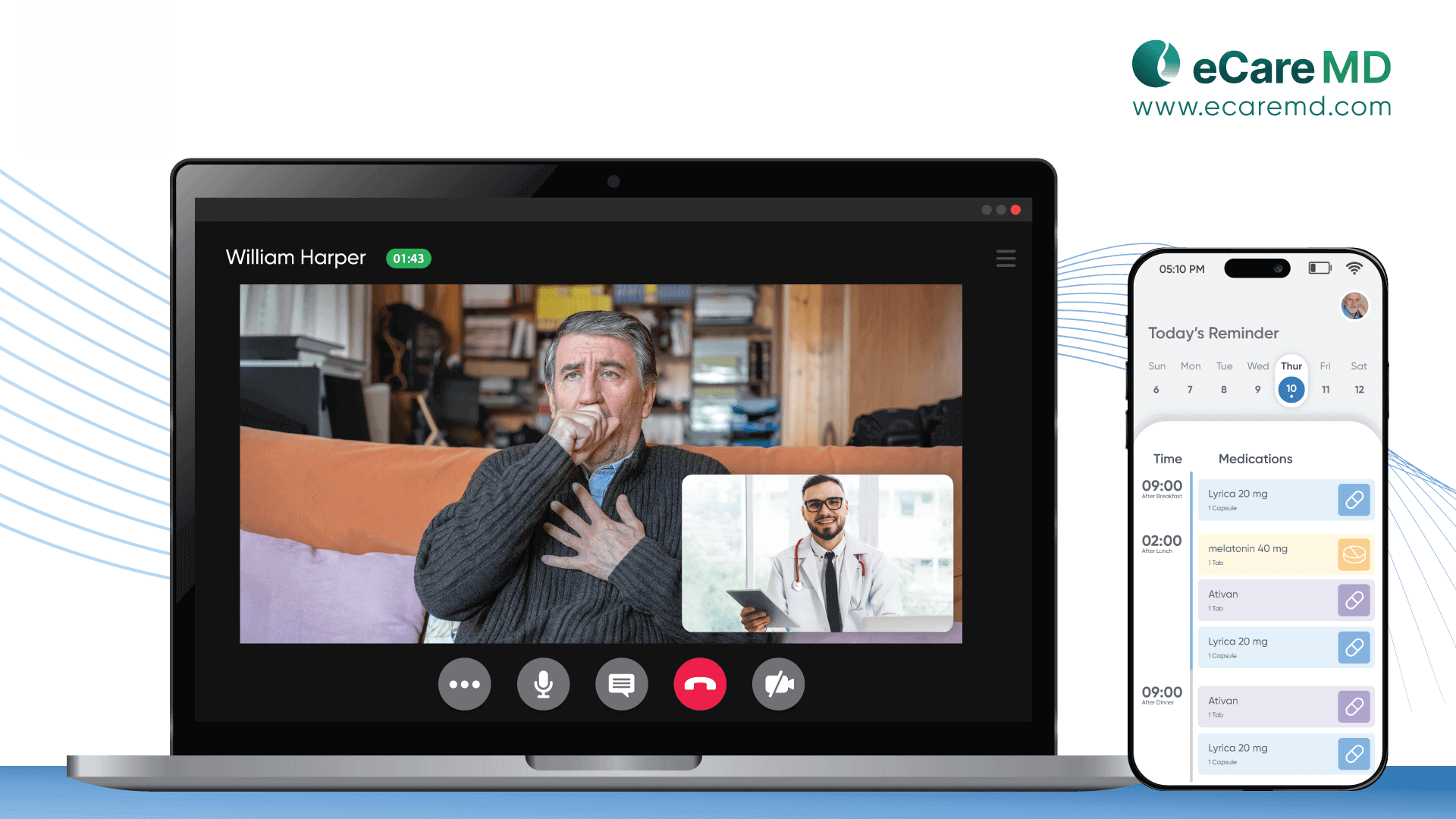Client Background
The client is a renowned provider of respiratory care based in the United States. And has a team of pulmonologists, respiratory therapists, support staff, etc. The client is dedicated to delivering the highest quality of care to patients suffering from respiratory conditions. The clinic provides a diverse patient population diagnosed with chronic obstructive pulmonary diseases.
Business challenges
While managing a huge patient population through the traditional EHR platform to manage their respiratory illness, clients faced many challenges in delivering timely and quality care due to
1. Difficulties in real-time monitoring
The client could not remotely monitor the real-time patient health status, which led to delayed interventions and affected patient health outcomes.
2. Difficulties in patient engagement
As the client’s software lacked remote patient monitoring functionality, the client faced challenges in engaging patients and keeping them adherent to the care plans assigned to them.
3. Inefficient task assignment
The client faced difficulties handling a diverse patient population with fewer medical staff. It is becoming difficult for clients to assign tasks to care providers and deliver personalized care to patients.
4. Delayed interventions for abnormal changes in patient health
The client’s software lacked the functionality to generate alerts and notifications for abnormal patient health changes. Hence, care providers were unable to make interventions at the right time.
Solution
To overcome the issues, the client has approached Medarch Inc. for eCareMD software with remote patient monitoring capabilities using cutting-edge technologies. Our business analysts and subject matter experts took multiple calls and demonstrations with clients to understand the exact requirements and business challenges.
After receiving the client's approval, our team implemented the eCareMD software into the client’s practice. Since the software implementation, the client has experienced improved healthcare delivery for patients with chronic obstructive pulmonary disease.
Solution Highlights
1. Integration of remote monitoring devices
The eCareMD software integrates with remote monitoring devices like spirometers and pulse oximeters, continuously monitoring the patient’s vital signs, such as blood oxygen levels and lung function. The collected vital reading is transmitted to the care provider’s eCareMD software in real-time. It allowed them to monitor patient health remotely.
2. Telecommunication capabilities and medication reminders

With the secure voice/video call and real-time chat functionality of eCareMD software, care providers could consult patients virtually. Using this, the care provider can communicate with patients for daily/weekly vital reviews, care plan assignment and monthly updates, care plan progress evaluations etc. Also patient’s were able to communicate their health concerns/suggestions to the care providers. Also the software enables care providers to configure medication reminders to be sent as hourly, weekly or monthly etc.
It helped increase patient engagement and patient satisfaction.
3. Task assignment
After implementing eCareMD software, the client was able to assign tasks to the care providers to complete the clinical activities. This helped care providers deliver more patient-centered care to patients with fewer medical staff, resulting in improved patient health outcomes.
4. Alerts and notifications
This feature helped care providers get notified when there are abnormal patient health changes. The system generates alerts of low, moderate, and critical severity. Based on the notification received for alerts generated, the care provider can make necessary interventions and do the required clinical activity over the patient profile.
It reduced patient health complications and, thereby, hospital readmissions and emergency visits.
Value Delivered
1. Personalized healthcare delivery
The real-time monitoring of patient health vitals enables care providers to track trends, fluctuations, etc. It helps them customize the treatment plan according to the patient's vital readings, delivering more personalized care.
2. Improved patient engagement and medication adherence
The telecommunication capabilities of eCareMD helped care providers and patients communicate with each other regarding health concerns, suggestions, and clinical activities.
Also, the medication reminder functionality helped improve patients' medication adherence. It resulted in improved patient engagement and medication adherence.
3. Efficient task management
With the task assignment functionality, care providers were able to assign tasks to the respective care team members, enabling them to complete more clinical activities with a low medical staff.
4. Reduced hospital readmissions and emergency visits
The software's alerts and notifications functionality helped care providers make necessary interventions on time to resolve patients' health complications. Hence, early intervention by care providers reduced the hospital readmission rate and emergency visits, leading to improved patient health outcomes.

